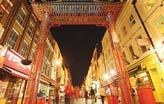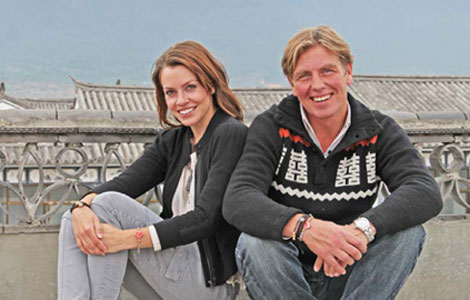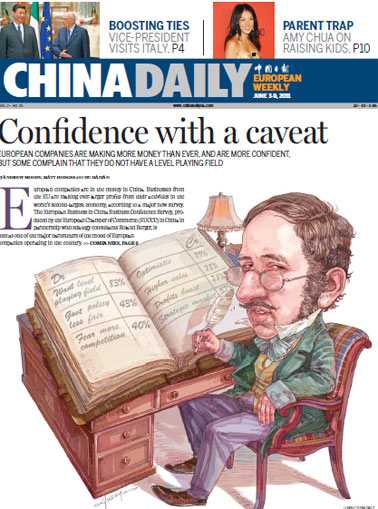Improving app-iness
Updated: 2011-06-03 11:30
By Andrew Moody (China Daily European Weekly)
"They got tributes from rulers in the Indian Ocean and at one point they brought a giraffe back to the Forbidden City. There was little commercial point to it and like the moon landings it was expensive and the benefits were modest," he says.
But Ferguson argues as a result of its new isolation China began to lack the competitive edge of European states that needed technological advancement to have a military and economic edge over their neighbors.
"In Europe you have competition between states, some of them very small, and also competition within states, new corporate entities such as the City of London and then later corporations like the East India Company. There is nothing like that in China, nor could there be under the imperial system," he says.
Lack of competition is one of what Ferguson describes as "six killer applications" behind the West's ascendancy.
The others are advancements in science, the establishment of property rights, breakthroughs in medicine, the emergence of a consumer society and the establishment of a work ethic.
With the latter Ferguson goes over similar territory to the German sociologist Max Weber, who believed countries such as China fell behind because they lacked the so-called Protestant work ethic.
Ferguson rejects Weber's view that Protestantism made its followers somehow better capitalists.
"I don't think that is how it works. I think a more straightforward explanation is that Protestantism made people literate and literate people are more productive and can do more complex things," he says.
The central argument of Ferguson's book is that China and other emerging countries such as India are getting better at the "killer apps" themselves and that is why there is this current shift back from West to East.
On the work ethic aspect alone, there is a gulf emerging between Europe and the rising Asian powers, he says.
"Asians now work a lot more than Europeans. The average Korean works 2,400 hours a year compared to 1,400 hours for a German," he says.
Ferguson's new book and TV series are in part inspired by the late 1960s series of the same name presented by the late Kenneth Clark, whose focus was more on Western art.
"I was far too young to watch it, although I vaguely remember a grand figure standing in front of a cathedral," he says.
"My point is the least special thing about Western civilization is art and architecture because that of other civilizations was pretty good too. I was more interested in the plumbing than the pictures on the wall."
Ferguson, who is an adviser to the UK education secretary on the teaching of history, despairs about classroom outcomes.
"When you ask them basic history questions they think Nelson's Column is named after Nelson Mandela. It is that bad," he says.
The historian, who is back at Harvard in July, was also an adviser to the John McCain presidential campaign in 2008, but doesn't think there is a serious Republican candidate this time.
"There is no Ronald Reagan in view now. Newt Gingrich or Mitt Romney. I think (Barack) Obama beats either of these two guys. I don't think Sarah Palin is a serious contender, although many people underestimate her, particularly in Europe," he says.
Ferguson believes many Americans are now caught up in a fatal conceit and kid themselves that China has a vested interest in funding their growing budget deficit for evermore.
"People in Washington say (about China) that they need us as much as we need them so there is no problem. I say they are wrong," he says.
"China needs the American consumer much less than it did 10 years ago. China has a plan - and it is no secret because they publish it - to shift away from a reliance on exports to the West and toward more domestic consumption. There is no guarantee the Chinese will continue to fund the (US) federal deficit," he says.
E-paper

Tapping into the future
Foreign companies are investing in China's water industry as many predict a growing profit margin.
Preview of the coming issue
Headhunters ride on growth
Commercial property rides wave
Specials

Cuisine central
London's Chinatown is helping diners appreciate full palate of Chinese food

Tying the knot
Danish couple's high-end macrame export business takes off in the mountains of Yunnan.

Truly a super woman
Li Yuchun first came to prominence in 2005 as the Super Girl winner, and since then has become an international star.
